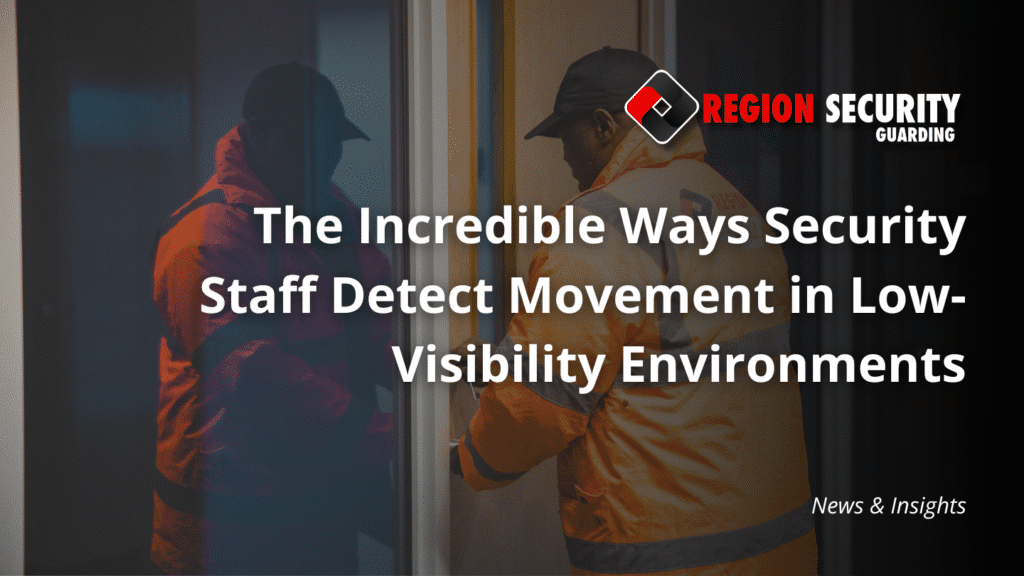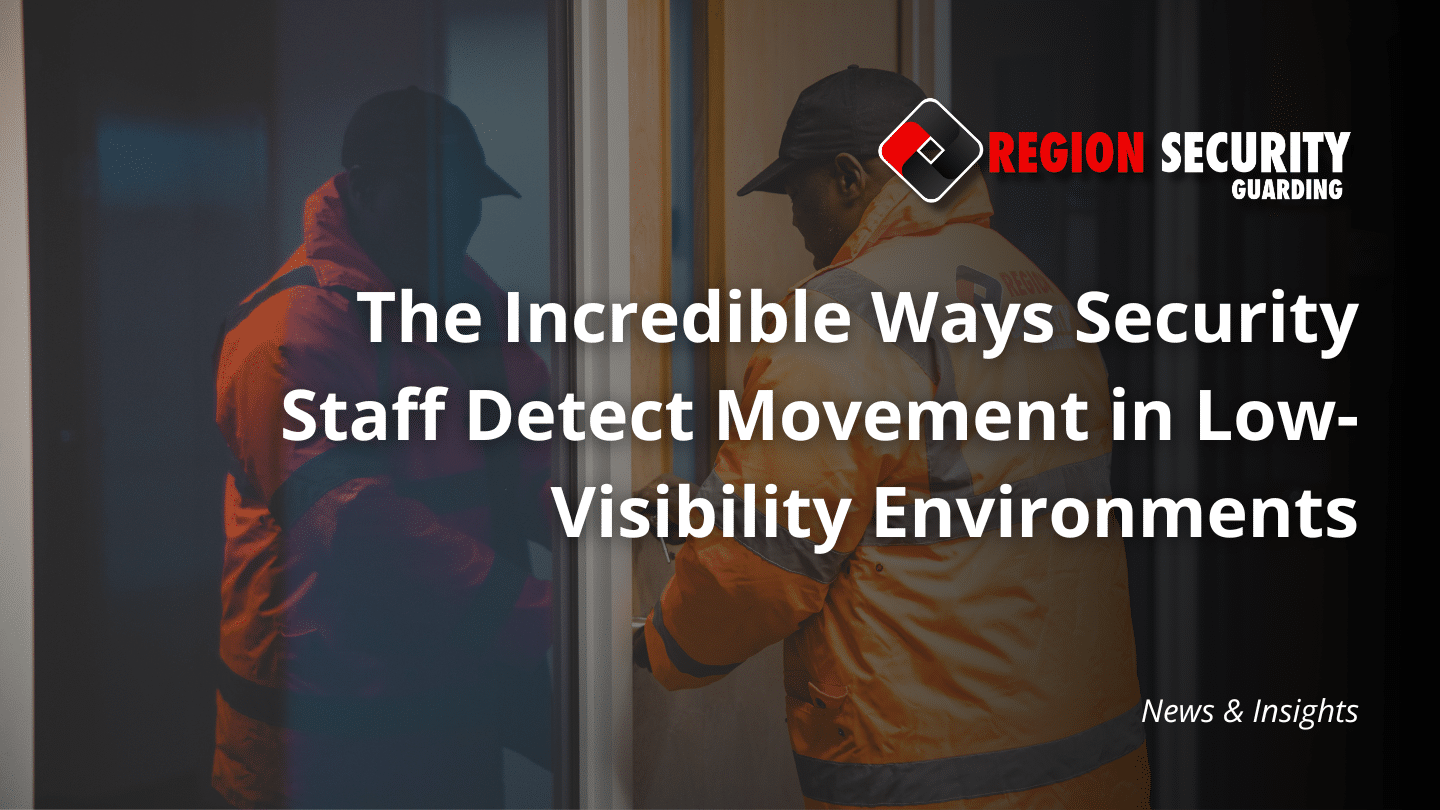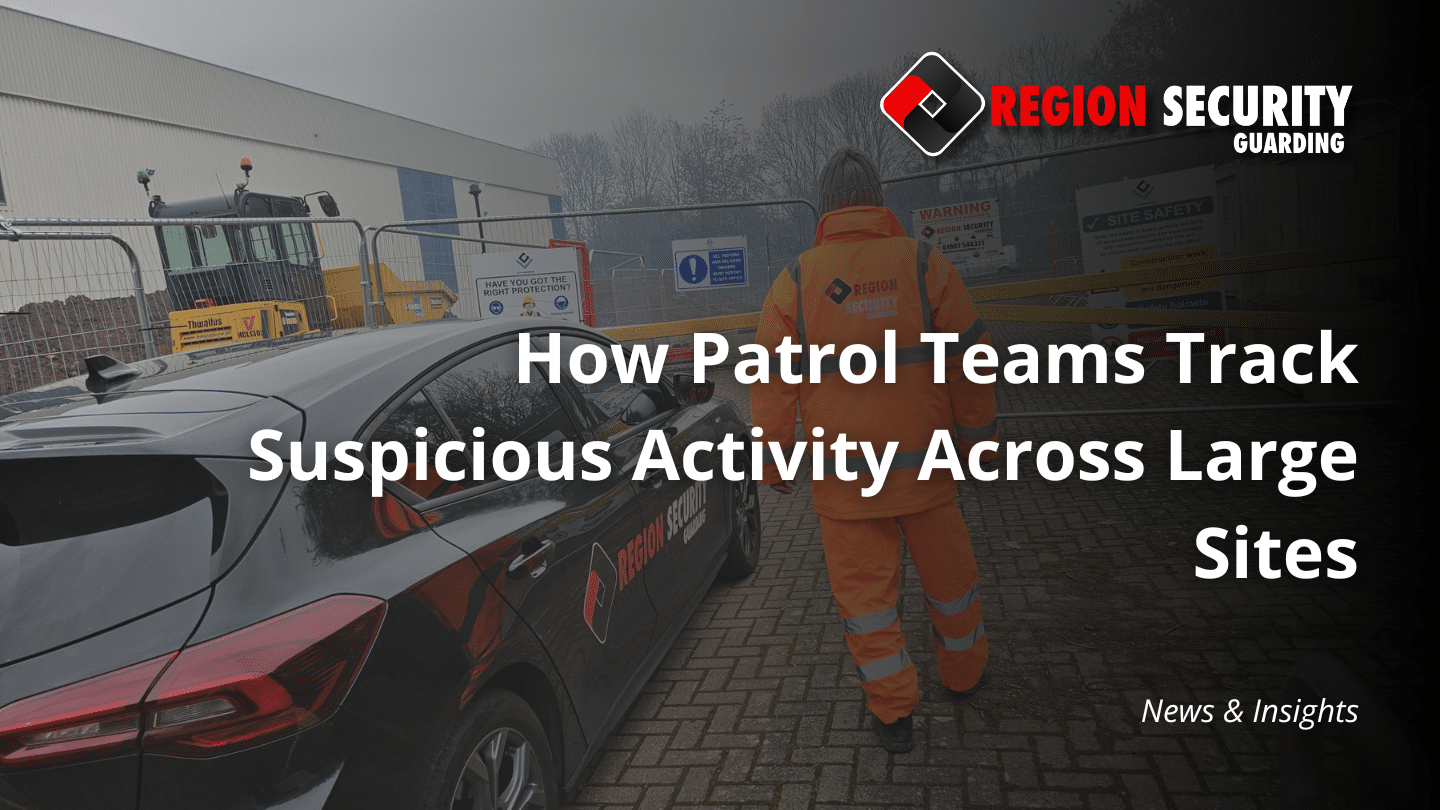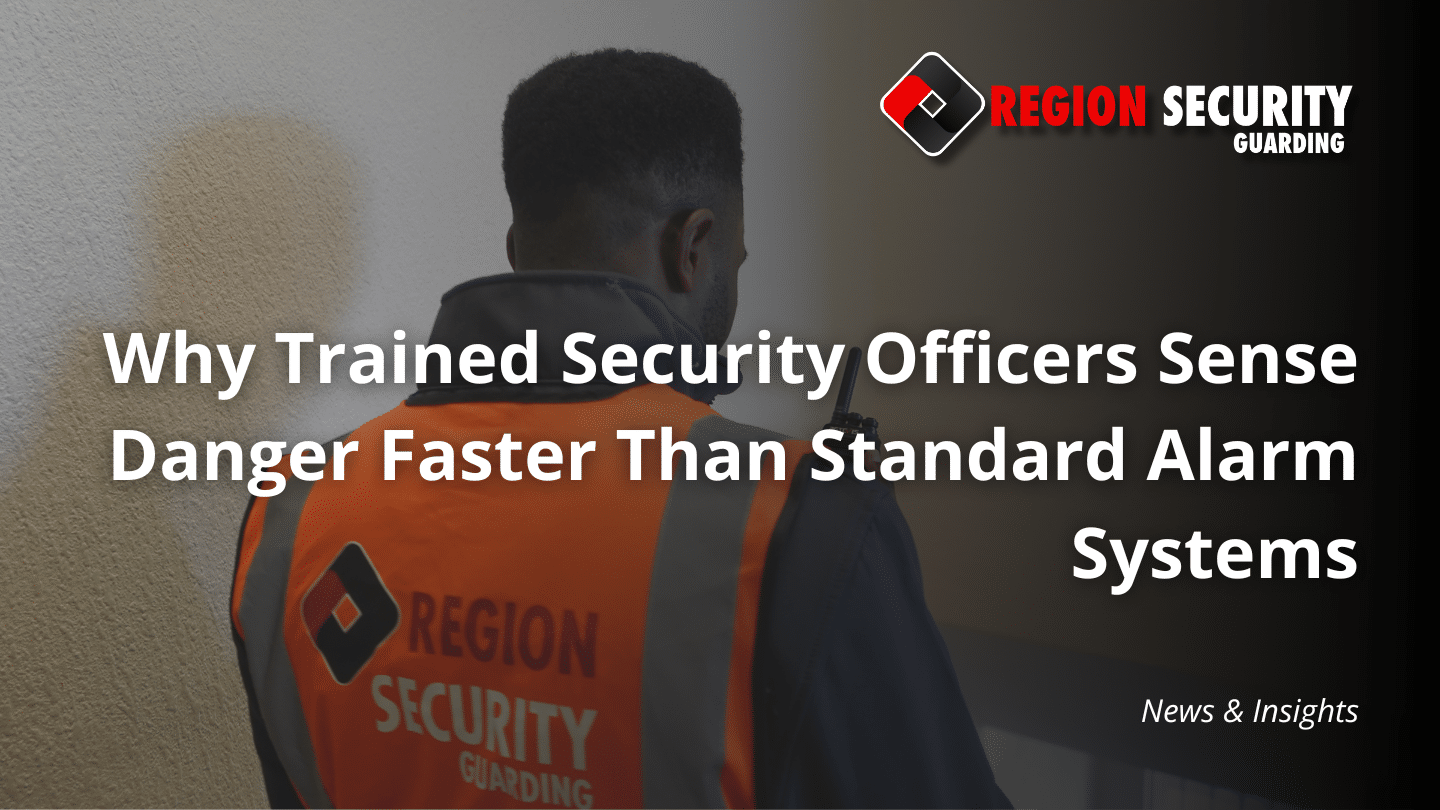When night settles over Birmingham, the city does not slow down. But seeing what moves in the dark becomes far harder. The security team still needs to know what moves, even when they can not see much at all.
Now, security guards are using advanced low-visibility movement detection in Birmingham to stay aware in dark halls, misty streets, and loud venues.
Together, they give guards a way to read a scene that looks empty to everyone else. It is a mix of instinct, quick checks, and tech that feels almost hidden. Step into this world and see how they keep calm when the city fades into shadow.
Table of Contents

Advanced Low-Visibility Movement Detection in Birmingham
Why Traditional Security Methods Fall Short
Human sight fades fast when the light drops. In Birmingham, fog, smoke, wet streets, and shifting indoor lights make this even harder. These conditions twist what guards see, turning simple checks into slow guesses. Vision alone can not keep up, especially when the environment keeps changing.
Low-visibility conditions are not rare in Birmingham, and the numbers highlight the danger. Studies show that more than 60% of unauthorised activity occurs during low-visibility hours, making advanced detection tools essential for modern security operations.
How Modern Technology Enhances Detection Accuracy
Modern tools give security teams a clearer edge. Thermal cameras track heat instead of light. Sensors pick up tiny shifts the eye would miss. Smart software studies patterns and flags anything unusual.
These systems work together and stay sharp around the clock. Some can even trigger lights, alarms, or door controls, cutting the delay between detection and action.
Key Benefits for Security Teams Using Advanced Technology
With advanced tools in place, movement stands out right away. Guards get fewer false alarms and clearer alerts. Each device adds another layer of detail, giving teams a wider view of the whole scene.
This boost in awareness helps them react faster, stay safer, and protect property more effectively, even when the space feels dark, crowded, or unclear.
Enhancing Visibility with Thermal Imaging Surveillance Systems
How Thermal Imaging Works
Thermal imaging surveillance systems read the heat that people and objects give off. They do not care about light at all. A clear picture forms from temperature differences, which makes these systems useful when fog rolls in, smoke fills a hallway, or a site slips into full darkness.
Even glare or flashing lights won’t break the feed, since the system watches warmth, not colour or shape.
Why Security Teams Rely on Thermal Imaging
Guards turn to this tech because it reveals things the eye can’t. Someone hiding near a fence or staying still in a dark corner still gives off heat. The camera picks it up right away.
It stays steady in harsh areas, loud factories, open fields, or sites with shifting weather, where normal cameras struggle to show anything clear. This cuts hesitation and gives staff a solid read of what’s moving around them.
Practical Use Cases
Perimeter checks become easier, since movement stands out fast on a heat map. Large rural spaces also benefit, as the system can spot a person far from any light source.
Industrial zones gain another layer of safety, especially where steam, machinery heat, or poor lighting make normal vision unreliable.
Precision Tracking Through Infrared Motion Detection Sensors
The Science Behind Infrared Detection
Infrared motion detection sensors detect the infrared energy emitted by people and objects. Every warm body emits a small but steady flow of heat. The sensor notices changes in that heat pattern and signals when something moves.
It does not rely on bright light or clear air, which makes it steady in places where sight breaks down.
Benefits of Infrared Sensors in Low Visibility
Security teams use these tools because they catch motion when regular cameras fail. Fog, smoke, or thick shadows do not stop the sensor from noticing a shift in heat.
Even in full darkness, it stays alert. Guards do not have to guess at shapes or worry about glare. They get a simple, clear signal that something has moved, which helps them act faster and with more confidence.
Common Deployment Locations
You will often see infrared motion detection sensors in parking lots, where cars and shadows create confusing scenes. Hallways use them to track quiet movement without needing bright lights.
Restricted zones rely on them for extra control since a warm body can not slip past unnoticed. These placements help cover areas where visibility drops or where constant monitoring is hard.
How Night-Vision Monitoring Technology Supports Security Teams
Light Amplification for Better Visibility
Night-vision monitoring technology takes tiny bits of light and stretches them into a clearer view. A dim sign, a small glow from a window, or even the moon can be enough.
Shapes stand out. Bodies show their outlines. Slow steps become easier to notice. This gives security teams another layer of support for advanced low-visibility movement detection in Birmingham, especially when bright lighting is not an option.
When Night Vision Excels Over Other Tools
Night vision works best on long paths and open outdoor spots where lighting changes without warning. It stays steady even when shadows move or the ground drops away.
Guards don’t need to stop and adjust anything. They look and keep walking. It helps when covering wide areas that other tools might struggle to read from a distance.
Practical Applications
Guard posts use it to watch quiet corners without adding extra lights. Perimeter checks gain clearer lines of sight along fences, storage yards, and empty fields.
In these spots, night vision helps staff stay aware and read movement that would disappear in pitch-dark surroundings.
Low-Light Security Detection Tools for Real-Time Awareness
Tools Used in On-the-Ground Operations
Security teams often turn to low-light security detection tools to carry with them. Enhanced flashlights cut through dark corners without blowing out the scene.
Low-light body cams pick up motion and detail when the area offers almost no light. Smart surveillance goggles add a quick brightness boost, helping guards spot movement without slowing their pace.
Stationary Low-Light Systems
Fixed setups support spots that need steady watch. Cameras with stronger low-light lenses pull in whatever light is available and turn it into a clearer image.
Automated low-light alarms react the moment something shifts where it shouldn’t. They don’t wait for someone to walk past. They stand watch on their own and call attention when needed.
Improving Patrol Efficiency
With better visibility, guards cover more ground in less time. They don’t waste minutes trying to guess what’s ahead.
A wider, clearer view shortens their response and helps them move with more confidence. In dim places, that extra clarity makes every step safer and faster.
Conclusion: The Invisible Becomes Visible
Low light hides movement, but guards still find it. They use tools that read heat, lift faint light, and catch small shifts that would slip past the eye. Each device adds a layer of clarity when the scene turns dim.
With advanced low-visibility movement detection in Birmingham, security teams stay alert, move faster, and keep control even when darkness tries to cover the truth.
FAQs
1. What tools do security staff use to detect movement in low-visibility environments?
They rely on heat-based cameras, infrared sensors, and night-vision gear. Each tool helps them notice movement that normal vision can not catch.
2. Why is advanced technology necessary in poor visibility conditions?
Fog, shadows, and dim areas hide motion. Advanced technology cuts through these limits and gives guards clearer signs to act on.
3. How does AI-powered movement recognition improve security monitoring?
AI reads patterns fast. It spots odd movement, sorts real threats from harmless activity, and helps teams react sooner.
4. Are thermal and night-vision tools the same?
No. Thermal tools read heat. Night-vision tools boost weak light. They work in low light but in different ways.
5. Do all security environments need these advanced detection tools?
Not every site needs them. But large, dark, or high-risk areas gain safer and sharper awareness with these tools.
Business Security You Can Rely On
Trusted by leading businesses nationwide for reliable, 24/7 protection.
or call 0330 912 2033

We have used Region security for quite a while now. Top notch service, great guards and helpful staff. We love our guards and the team for all of their help / work. No need to try the other companies at all."
Andy Yeomans - Jones Skips Ltd
Great company, professional services, friendly guards and helpful at times when required."
Rob Pell - Site Manager
A professional and reliable service. Always easy to contact and has never let us down with cover. No hesitation in recommending and competitively priced also. After using an unreliable costly company for several years it is a pleasure to do business with Region Security"
Jane Meier - Manager
Region Security were very helpful in providing security for our building. We had overnight security for around 4 months. The guards themselves were professional, easy to reach and adapted very well to our specific needs. Would definitely recommend Region for security needs.
Lambert Smith Hampton
Great service. Reliable and professional and our lovely security guard Hussein was so helpful, friendly but assertive with patients when needed. He quickly became a part of our team and we would love to keep him! Will definitely use this company again
East Trees Health Centre
Fantastic Service from start to finish with helpful, polite accommodating staff, we have used Region Security a few times now and always been happy with what they provide.
Leah Ramsden - Manager




